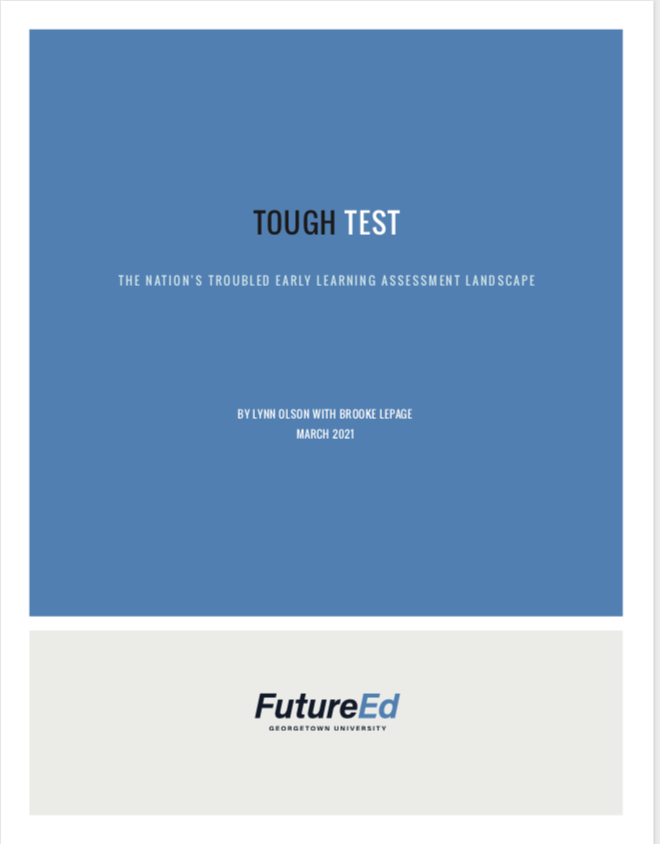 At a time when the nation is investing significantly more resources into early learning, policymakers have scant information on whether these investments are paying off because of a dearth of dependable information about how much students are learning and developing from preschool through grade 2.
At a time when the nation is investing significantly more resources into early learning, policymakers have scant information on whether these investments are paying off because of a dearth of dependable information about how much students are learning and developing from preschool through grade 2.
A report from FutureEd documents the incoherent, misaligned web of early learning assessments that are costly, challenging to administer, prone to misuse by policymakers, and often neglected altogether.
The lack of a comprehensive, system of measures in preschool and the early grades compromises a critical component of the nation’s educational infrastructure, a problem intensified by the pandemic’s disruption of early learning programs nationwide.
The absence of high-quality, systemwide data makes it hard to target resources effectively, ensure disadvantaged students are getting the early support they need, and improve programs and teaching quality. A lack of sound measures risks squandering resources—and leaving our aspirations for young children unfulfilled.
The report, authored by Senior Fellow Lynn Olson, draws on the insights of nearly four dozen state and national experts, as well as a 50-state scan of early learning systems led by Policy Analyst Brooke LePage.


